engines high-content hEXselect and UniPEx protein arrays consist of more than 15,000 human antigens. The broad and unique human proteome coverage gives you the opportunity to analyse interactions with full-length proteins, isoforms, peptides – and even neoantigens such as frameshift peptides as potential biomarkers. Our antigens include major functional classes , cover different tissues and are involved in a broad range of diseases.
We differentiate the human antigens on our arrays into full-length proteins, protein isoforms & peptides and neoantigens & frameshift peptides. Frameshift mutations are commonly the cause of severe pathologies so neoantigens and frameshift peptides are relevant in different diseases. The combination of established, published and well-characterised antigens and neoantigens enables you to discover hypothesis-free and unbiased novel biomarkers and increases your chance for new, decisive discoveries.
The hEXselect Array (product no. 1003) has >57,000 spots and >21,000 human antigens which represents >7,000 different human genes.
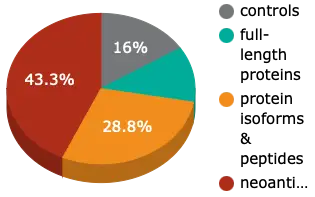
The UniPEx Array (product no. 1008) has >36,000 spots and >15,000 human antigens which represents >6,000 different human genes.
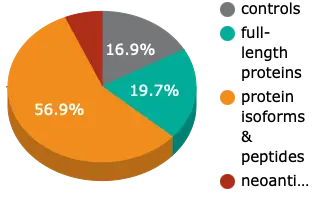
Controls and human protein & peptide expressing E. coli clones are spotted onto a PVDF membrane. Guiding spots, as well as blanks and E. coli clones with empty vectors are used as controls. The E. coli clones are spotted at least in duplicate.
Our antigen library consists of >27,000 different human antigens, represented on hEXselect and/or UniPEx Array. To give you an insight on how these antigens cover the human proteome, we analysed our >2,000 different full-length proteins with the Human Protein Atlas and display in the following charts the general protein classes, tissue expression and disease involvement. Please note that proteins can also be part of several groups, like expression in several tissues.
Protein subclasses of full-length proteins.
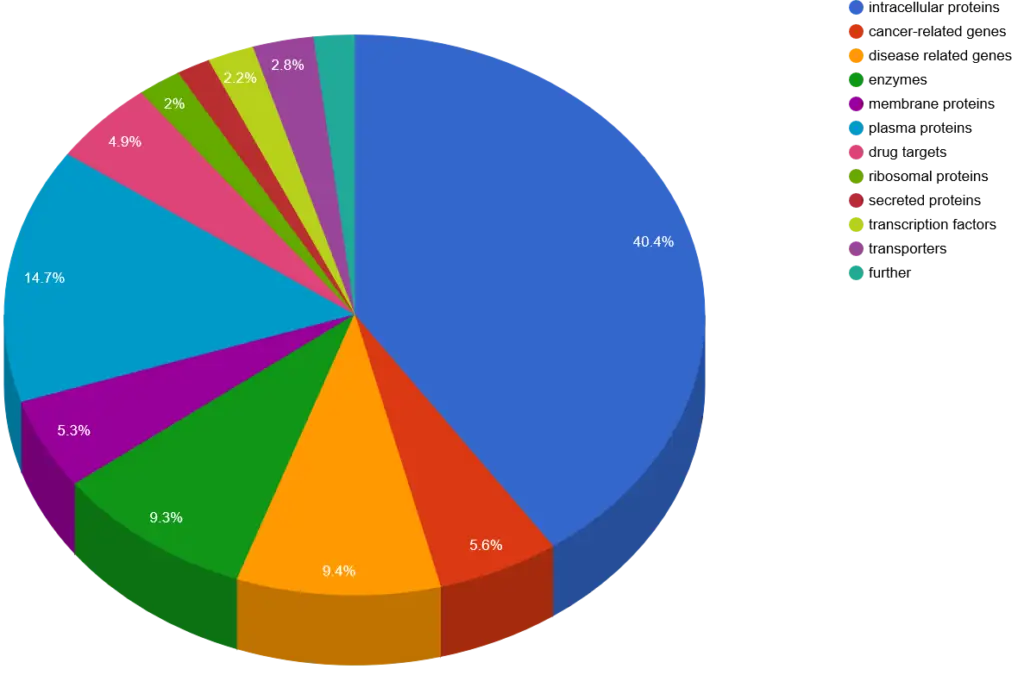
The human protein expression library is derived from human fetal brain, CD4+ T‑cells, lung and colon cDNA, but our antigens cover a broader range of tissue expression.
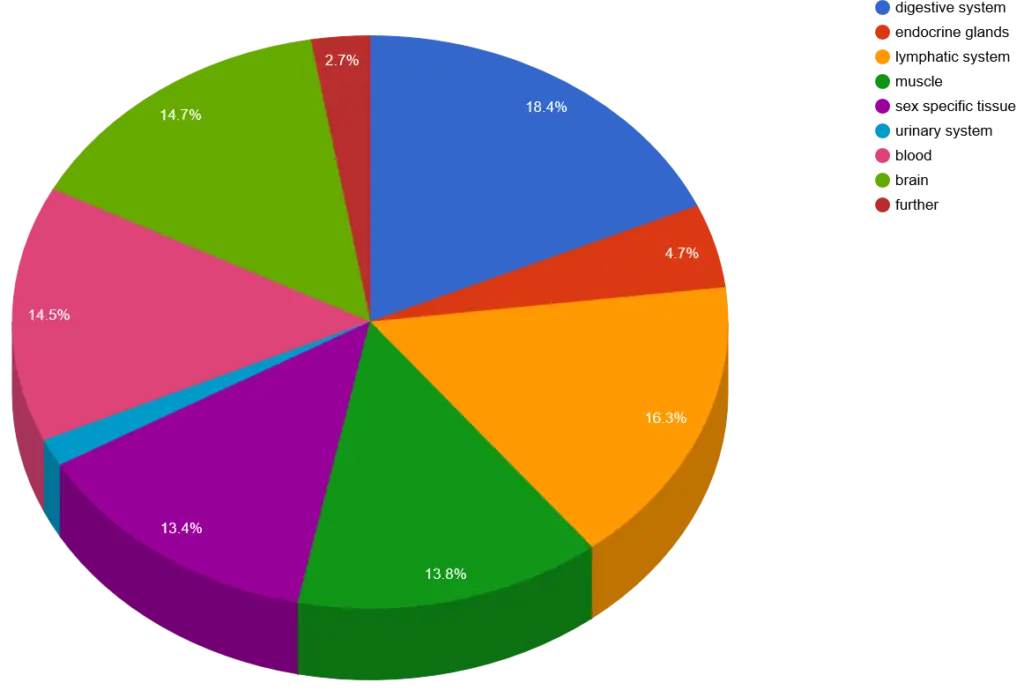
The full-length proteins are involved in 96 different diseases. With novel biomarker discovery this list will probably expand.
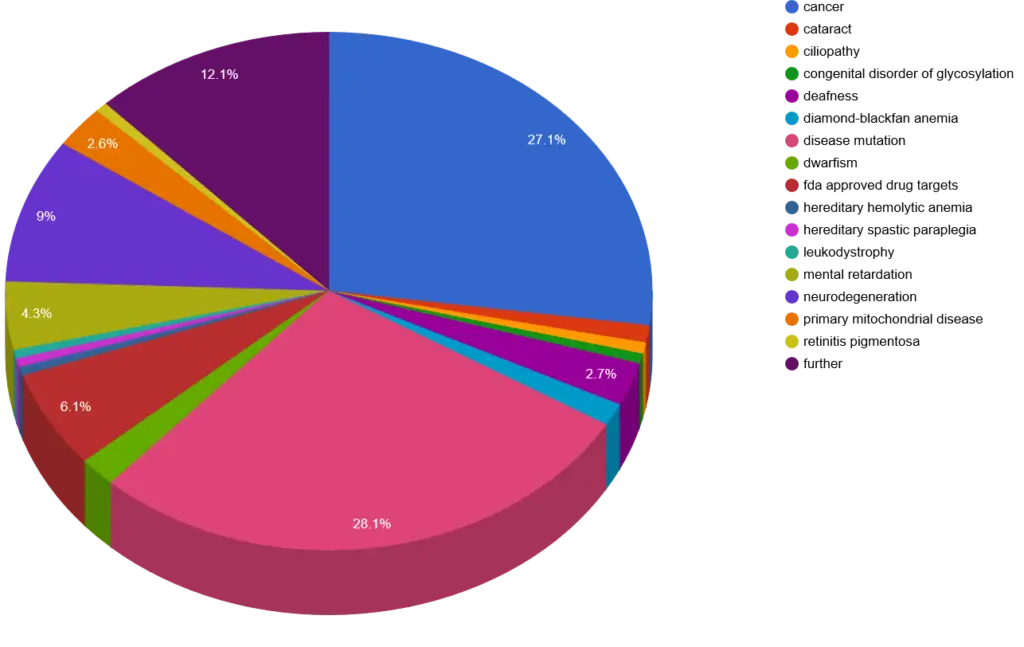
We have listed in our gene finder database all genes that are on our hEXselect or UniPEx array. Use the full-text search to find the gene from your desired research field.
You need more information?
Download the complete gene finder file (xlsx, 19.3 MB), or just send us a mail.
What’s inside?